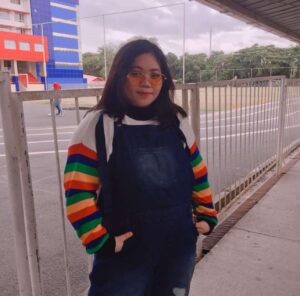Donita Dang, the owner and founder of PLUMPINAY, is a 30-year-old entrepreneur with over 8 years of experience in the fashion industry. Initially starting with a physical store, Donita now operates PLUMPINAY exclusively online. Her brand focuses on providing stylish, affordable clothing for plus-sized individuals, an area that has been largely underserved in the local market. As the owner, she handles marketing, designing, and the day-to-day operations of the business.
Plumpinay started out in Divisoria with a physical store but transitioned to an online platform. The brand was founded out of Ms. Dang’s personal experience as a plus-size woman struggling to find clothes that fit. As a former medical representative, she had trouble finding clothes that fit her body type, which led her to start selling plus-size fashion. Over the years, they experimented with different suppliers and product types, including jeans and other plus-sized garments, and eventually transitioned to selling entirely online. Despite the challenges, including a difficult period after the 2017 leadership change in Divisoria and the pandemic, PLUMPINAY has persevered with a focus on catering to plus-sized customers.
Ms. Dang emphasized organic marketing over paid influencers. Instead of relying on celebrity endorsements or PR packages, PLUMPINAY focuses on building trust with its customers through authenticity. The brand opts for transparent marketing, showing real product pictures and videos without edits, to accurately represent the design. Ms. Dang also prefers using relatable influecners who are not overexposed and who geniunely support the brand. The goal is to maintain trust by avoiding misleading marketing tactics that confuse or mislead buyers.
Ms. Dang suggest that, to create a fairer marketplace, brands should commit to offering unique, original designs rather than copying others. She also advocates for more transparency in influencer marketing, with endorsements coming from real plus-sized individuals whoa accurately represent the body types they’re promoting. Additionally, she calls for more reasonable influencer fees and a greater commitment to supporting innovation over commercial exploitation.
Written by: Allyza Neptuno









